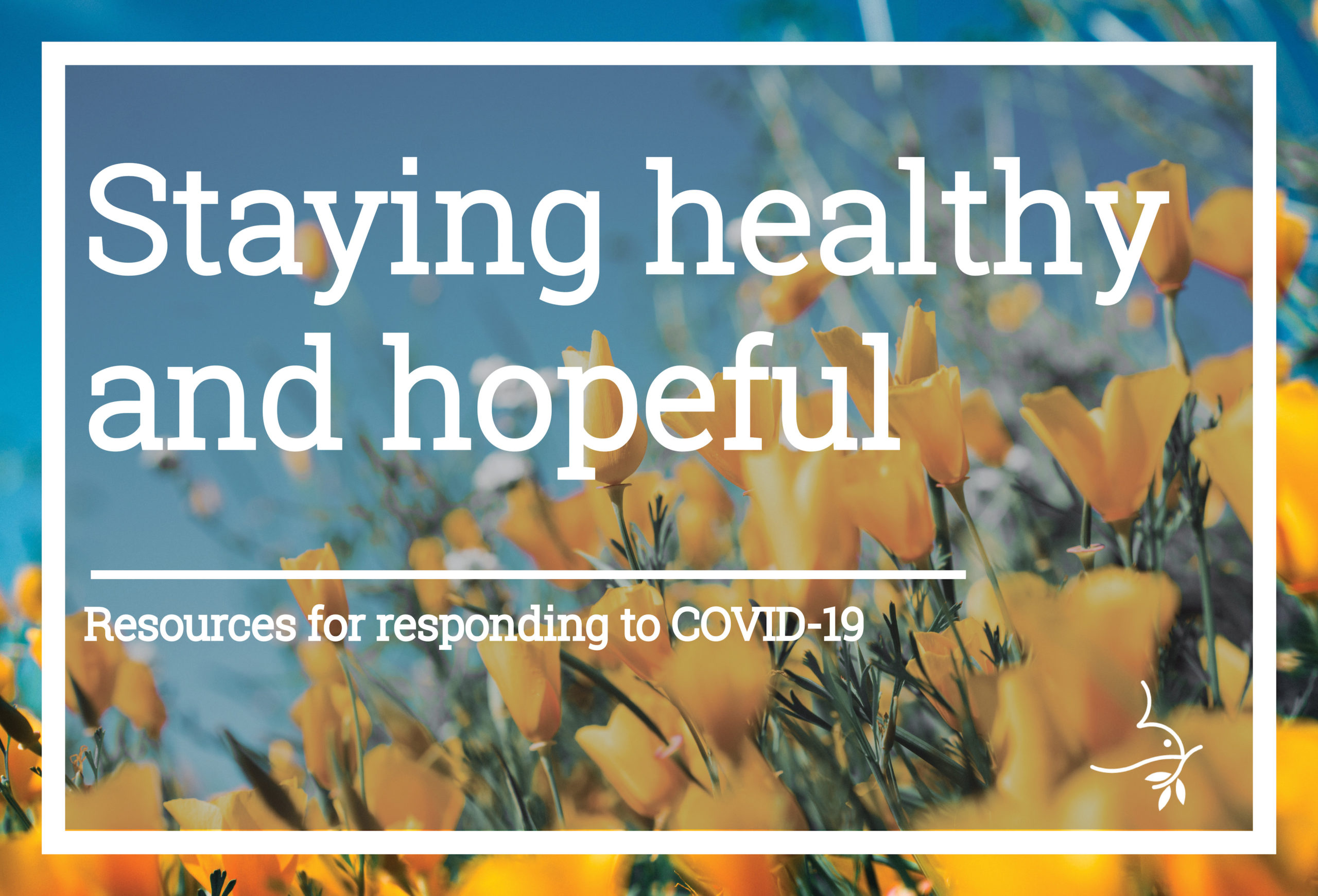Duncan Smith wrote the first part of this two-part blog early last year, near the beginning of the COVID-19 pandemic. Read it here.
 Duncan Smith has been Director of The Corinthian Plan (TCP) since 2014. Previous to TCP, he served as a conference minister and several pastorates, including transitional interim positions. Duncan’s pastoral experience spans both urban and rural settings. Many years ago he spent two summers working in Yellowstone National Park.
Duncan Smith has been Director of The Corinthian Plan (TCP) since 2014. Previous to TCP, he served as a conference minister and several pastorates, including transitional interim positions. Duncan’s pastoral experience spans both urban and rural settings. Many years ago he spent two summers working in Yellowstone National Park.
____________________________________________
Just over a year ago, we were still trying to take in and understand what it meant to shelter-in-place, wear masks, physically distance ourselves and use hand sanitizer — all to be safe and flatten the COVID-19 curve. Remember looking for toilet paper and other supplies? Some of us were even washing our groceries!
This “year” has been tough for just about all of us — more so for some. Many have lost loved ones to COVID-19; many are long-haulers, continuing to deal with the effects of the illness; and communities of color have suffered a disproportionate amount of death and illness. There has been loss of jobs, disruption of personal circumstances, and more.
Now, a year later, we grapple with what it means for the world to re-open. There is a light at the end of the tunnel, but it is not all behind us. We are bringing the past year with us — the loss and grief, even our newly discovered joys and ways of doing things. It is never easy to make an aboutface. So, it is not surprising that stories and news pieces are surfacing about the mix of anxiety, excitement, trepidation and relief that comes with further vaccination and re-opening.
Almost a month ago now, May 13, the Centers for Disease Control and Prevention (CDC) rolled out new guidelines, loosening mask mandates for those who are fully vaccinated and during outdoor activities. These guidelines offered some relief, but the roll-out was a little confusing. It continues to be important to understand local, state and federal (CDC) COVID-19 guidelines!
At this point, even though the number of those who are fully vaccinated in the United States (42.3% of those over 12 years of age, at this writing) is steadily increasing, not everyone is vaccinated. For example, though the age of those who can receive vaccination is steadily decreasing, younger persons — especially under the age of 12 — have not likely been vaccinated yet. There are others, such as people that respond negatively to flu shots and other serums, who may never be vaccinated against COVID-19. Families are currently facing questions about their summer vacation and what to do if some family members are vaccinated and some not. Since people will be in various stages of vaccination, it is good to keep an awareness of the different needs and circumstances surrounding mask wearing, social (physical) distancing and other COVID-19 precautions.
This is all complicated, and there are still times when those who are vaccinated will be asked to wear masks. There is a need to respect state and local COVID-19 guidelines. Individual business and organizations, such as your own congregation, will have their own guidelines, depending on who they serve, the vaccination status of their own staff, etc. If you have disagreement with another person, or business, in how they are handling COVID-19 protocols, make the choice that is the best for your own comfort and health, while still respecting those around you.
We may not always like it, but as I noted in my blog a year ago on physical distancing, following some simple guidelines can help protect us and the broader community, even now, for a bit longer.
Even as a fully vaccinated person, I will need to take precautions for the sake of myself and others.
I can still be a carrier. I can still be infected with COVID-19, even if I am not as concerned about the severity of contracting the illness. As society opens the public arena again, a contribution that we can all make is to exercise an increased discernment and interest in the needs of others.
Life is not a straight line. Just when we think things are behind us, we realize that there is something else we had either not seen or ignored.
So, try this: First, be smart in your actions, be kind to others and celebrate those things we are now able to do again, as COVID-19 restrictions lift. Studies have shown that gratitude increases one’s own health! We may need to re-discover joy!
Second, as we celebrate, take note of those around you who have suffered the most over this past year — those who have been isolated, those who need the most encouragement or support to get back on their feet. It has also been shown that sharing with others also increases one’s health!
Over the last year The Corinthian Plan (TCP), along with its’ partner Everence has worked hard to provide a comprehensive response to COVID-19 for health coverage participants and those participating in other ways. Beyond health coverage, this has included a premium holiday and grants for congregations facing financial hardship due to COVID-19. Data shows that TCP participants have remained fairly healthy during this time. An important part of this is that TCP participants paid attention to the current guidelines, to each other and have received COVID-19 vaccines, when able. Great job!
Keep paying attention to the most recent public health information from national (CDC), state and local public health agencies. If you are leaning toward not being vaccinated, but could be, I encourage you to consider the experiences and benefits of those you know who have been vaccinated.
Be well!
For more information and resources for responding to COVID-19, visit Mennonite Church USA’s resource page for staying healthy and hopeful.
The views and opinions expressed in this blog belong to the author and are not intended to represent the views of the MC USA Executive Board or staff.


